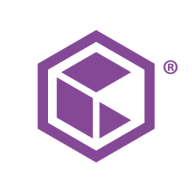

Commvault Cloud and NetApp Cloud Backup offer distinct cloud backup solutions. Based on user reviews, pricing and support appear to favor Commvault Cloud, but NetApp Cloud Backup is recognized for its comprehensive features, making it worth the investment despite higher costs.
Features: Commvault Cloud users highlight its granular recovery options and efficient data management tools. NetApp Cloud Backup is recognized for its seamless integration with existing infrastructure and robust security features. NetApp Cloud Backup has an edge due to its extensive feature set.
Room for Improvement: Commvault Cloud users desire quicker restoration times and a more intuitive configuration process. NetApp Cloud Backup users seek enhanced reporting capabilities and reduced complexity in setup. Commvault Cloud shows more areas needing improvement, particularly in ease of use.
Ease of Deployment and Customer Service: Commvault Cloud is recognized for its straightforward deployment and responsive customer service. NetApp Cloud Backup is also noted for efficient deployment but receives mixed reviews regarding customer support. Commvault Cloud scores higher in terms of deployment ease and customer service reliability.
Pricing and ROI: Users find Commvault Cloud's setup cost to be reasonable and quickly yielding a strong ROI. NetApp Cloud Backup's higher setup costs are offset by its robust features delivering substantial long-term ROI. Commvault Cloud is preferred for its cost-effectiveness, while NetApp Cloud Backup justifies its higher price with advanced capabilities.
At the pre-sale cycle, we have spocks aligned from Commvault with whom we get in touch, and they provide all the required support that we need.
The number of people who know Commvault Cloud is lesser compared to Veeam.
Customer support has very closed departments, requiring us to shuffle between them to get one thing done because representatives have limited accessibility.
I have not faced any downtimes with Commvault Cloud.
Commvault Cloud is highly stable, and I would rate it a ten out of ten.
I would like to see AI capabilities in Commvault Cloud.
I feel that the support is not yet up to the mark, with not enough professional engineers to provide assistance.
Commvault Cloud is expensive, and there is room for the price to be 10-15 percent lower than what they are charging currently.
The public cloud acts as a bigger solution for the on-premise while the on-premise acts as a DR for the public cloud workloads.
Other features include endpoint solutions, integration with Office 365, ransomware protection, archival for long-term retention, and no ingress or egress charges.
We can back up unlimited TBs due to our per node license.
| Product | Market Share (%) |
|---|---|
| Commvault Cloud | 6.8% |
| NetApp Cloud Backup | 0.6% |
| Other | 92.6% |

| Company Size | Count |
|---|---|
| Small Business | 57 |
| Midsize Enterprise | 24 |
| Large Enterprise | 82 |
Commvault Cloud is the ultimate cyber resilience platform built to meet the demands of the hybrid
enterprise. Beyond its core functionality of data backup and recovery across diverse workloads, including applications, databases, virtual machines, and files, Commvault Cloud stands out as a robust defense against ransomware. Going beyond backup, the platform integrates advanced data security features such as encryption, access control, and threat detection, safeguarding against unauthorized access and cyber threats.
With tools for data management, classification, and migration, businesses can optimize storage costs, enhance accessibility, and comply with regulations seamlessly. Boasting cloud integration with major providers like AWS, Azure, and Google Cloud, Commvault Cloud leverages the scalability and flexibility of the cloud for comprehensive data protection and management. The platform's automation capabilities streamline tasks, and its reporting and analytics features provide valuable insights into data usage, potential risks, and optimization strategies. Commvault Cloud is not just a security tool; it is a key component of cyber resilience, enabling organizations to not only protect against cyberattacks but also recover swiftly and minimize the impact of incidents. Elevate your cyber resilience strategy with Commvault Cloud.
NetApp Cloud Backup is a fully integrated service for cloud backup and restoration. It was created to comply fully with NetApp's native data management software ONTAP, used for hybrid cloud experience. NetApp Cloud Backup is used to create backup and restoration for the protection and archiving of data, databases, and virtual machines related to the Cloud and On-Premises data in ONTAP. The way NetApp Cloud Backup works is by automatically creating block-level incremental backups. This ensures that the created backups are very fast and easy to restore. It is suitable for data protection regarding on-premises software as well as in the public cloud. NetApp Cloud Backup provides users with the ability to protect their cloud data at affordable prices and with a user-friendly interface so they don't need a lot of technical knowledge to be able to secure their cloud storage.
The copies created by NetApp Cloud Backup can be stored in the user's personal object storage in the cloud as well as on premises with StorageGRID - NetApp's storage platform. The backup copies can be restored to the original source or to a different source in Cloud Volumes ONTAP. NetApp Cloud Backup provides backups to AWS, Azure, and Google Cloud.
The features NetApp Cloud Backup provides include:
In addition to enhanced security and protection from malicious attacks, the advantages of using NetApp Cloud Backup include:
Abbasi P., a User at a financial services firm, likes that NetApp Cloud Backup is a completely agentless solution.
A Service Manager at a tech services company values its stability, scalability, and good technical support.
We monitor all Cloud Backup reviews to prevent fraudulent reviews and keep review quality high. We do not post reviews by company employees or direct competitors. We validate each review for authenticity via cross-reference with LinkedIn, and personal follow-up with the reviewer when necessary.